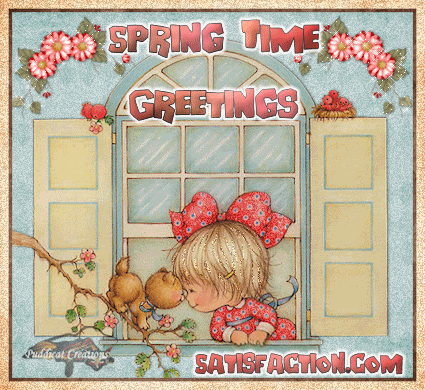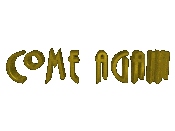
Q: Why fantasy? How does Christianity fit into this genre?
A: I've always thought fantasy is the perfect vehicle for grand,
sweeping ideas -- a way to clothe those ideas in wonderful stories
and break out the boundaries of the here and now into places where
truth and our imaginations can fly away. Well, that sounds a little
airy-fairy, but the truth is, I've always loved fantasy and sci-fi,
but have never been into the dark, jagged side of those kinds of
stories. So it only seemed natural to tell stories of faith using
fantasy as the launch pad, and staying on the positive side.
Q: Why did you choose a young adult audience?
A: I've written a lot of books for middle readers (8 to 12) and then
some for grown-ups. And, whoops, looks like I skipped an age group!
But really, I like the kinds of stories we can bring to these
readers. I'm still a kid myself.
Q: Do you consider writing more of a career or a ministry?
A: I guess I've never understood the difference between the two. I've
always wanted a career that's a ministry, or a ministry that's a
career. That's what writing is to me, and that's a big reason why I
enjoy my work so much.
Q: What did you want to be when you were growing up? How did you go
from there to becoming a writer?
A: Let's see... a forest ranger (liked the outdoors), a veterinarian
(liked animals), a Coast Guard boat driver (liked boats)... Those
were the big ones I can remember. At the same time, I was always
writing as a kid, and it always came back to that. Oh, also, when got
older I wanted to be a teacher, too. So if I can write stories about
all the things I'm interested in, and visit schools to talk about
writing (which I do), what's missing?
Q: What advice do you have for anyone who would like to be a writer?
A: Pursue the interests and passions God gives you first, and things
will fall into place. Learn as much as you can in school about the
mechanics of writing, and always practice your craft. Forget about
money and fame--because if you pursue those things for their own sake
you'll only fail (even if you find them). Be patient, and don't be
afraid of taking different kinds of writing jobs--like ad writing or
news writing--in order to build your skills and pay your dues. Don't
expect to write the Great American Novel right out of the gate. Keep
your eyes open, observe people. Love what you do, or find something
else.
Q: Do you have any future plans to retire from writing to do
something else? What?
A: As a freelance writer I've learned to hold on to my plans very
loosely, since I never know what could happen beyond the next
contract. Or tomorrow, for that matter. That's a bonus and a burden,
since it allows flexibility and forces me to always look to God for
my next paycheck. Worry lurks just behind trust, though, so that's a
challenge for every writer. But no--I have no plans to retire from
writing. They can pry my cold fingers from the keyboard.
Q: Do you have plans for future writing projects that you would like
to share with us?
A: Right now I'm working on a couple of books for the Guideposts book
club, a series called "Home to Heather Creek." Beyond that, I have
youth and YA ideas that are still in the oven, tba. (To be
announced.) I love writing kids and teen books!
Q: Which of your characters would you most like to be?
A: Definitely Oriannon from TRION RISING, because of her "eidich"
photographic memory. I'm nothing like that, as I forget just about
anything you can imagine: names, dates, phone numbers... What was the
question, again?
Q: With which character do you most closely identify?
A: Margus from TRION RISING, for sure. He's just enough of a tekkie
to get them in trouble. I'm a little bit like that, though not quite.
I used to take apart radios and electronic things when I was a kid,
but couldn't always get them back together.
Q: What Biblical truth are you trying to convey to your audience in
this book?
A: This book is sort of an allegory, maybe "allegory lite." In other
words, many of the events are inspired by what happened in the life
and ministry of Jesus, as recorded in the gospels (Matthew, Mark,
Luke, and John). I hope that readers will enjoy the story for the
story, but that by the end, some of the issues and events will cause
them to think, and maybe to check back with the Bible to see what
really happened.
Q: Please tell us a little bit about your book.
A: Trion Rising is the story of a 15-year-old girl, Oriannon, who
seems very normal in most ways. Oh, except she lives on another
planet, where it's always dark on one side, and always light on the
other.
She is also an eidich, which means she cannot forget anything she
sees or hears. That gets her into trouble when a very strange music
teacher arrives at her school, and Oriannon and her friends find
themselves in the middle of a conflict that threatens to tear their
planet apart. As she journeys to the Shadowside, Oriannon finds that
her teacher's life--and the lives of a people she didn't even know
about--all seem to depend on her.
Q: Do you have any quirky habits or rituals that you observe while
you are working on a writing project?
A: Hmm... I'll have to think about that one. I'm the king of post-it
notes--they're plastered all over my workspace with notes about
characters, to-dos, reminders. But that's not exactly quirky. Sorry!
I'm not much on rituals.
Q: When we've finished this interview, what would you like your
audience to remember about you?
A: That I'm just a regular guy with an over-active imagination who
loves God and his family.
Q: How did you choose the names for your different characters?
A: It's a fairly random process. I want something exotic-sounding,
not too long so the reader stumbles over it every time. Often I start
with a standard American name, then shorten it and start adding
different letters. Often I'll fill a page with scribbled variations
before coming up with one that seems to work. Then if the character
has a last name I'll either do the same thing, or choose the name of
a random inanimate object and alter it.
Q: Do they have any special meaning or significance?
A: Not usually. One exception will be coming in the third book of the
trilogy, where I've reversed the letters of my son's name and my son-
in-law's last name to create a character name. It worked out pretty
well, and I'll bet you won't be able to locate the name! :-)
Q: How do you choose what a character looks like? Is it like an image
your brain made up about the character and you decided it'd be just
right for that character?
A: Often I'll start out with a general idea, and then deepen the
description as I go. If I need to, I'll take added description
and "backfill" into earlier chapters. Sometimes I'll even find a
magazine picture of a character, and work from that. I prefer to keep
character description minimal, however, since readers will fill in
their own mental pictures, anyway. But for Oriannon and other
Coristans, for example, I wanted them to look somewhat Mediterranean,
since they live on the sunny side of the planet. I gave her features
that might remind you of a Greek or Italian person.
Q: How do you come up with their different quirks? Do some of the
other characters complain about others quirks and that's where they
sometimes come from?
A: I like to have each character own a couple of distinctives--ways
of thinking, speech patterns, or other habits. Sometimes I don't
figure out what they'll be until a couple of chapters into the book,
as they work into the story and I get to know them better. But it's a
lot of fun to make each character unique.
Q: Do you make the basis for the book title and series name and the
publisher then helps polish those ideas or how are the titles made up?
A: There's no one answer. I knew I wanted "Shadowside" as a title,
but at first we couldn't decide if that was a better book title or
series title. I came up with a few ideas, and the editors added a
few. We agreed on TRION RISING after it became clear that the Trion
sun/star system would play a very symbolic role in the first book.
For the second book, I knew it would be THE OWLING right from the
start, since it's all about the fate of the Owling people. Book three
we're still working on. So sometimes the title is plain from the
start, other times it take a bit of noodling.
Read first chapter here.
















































No comments:
Post a Comment